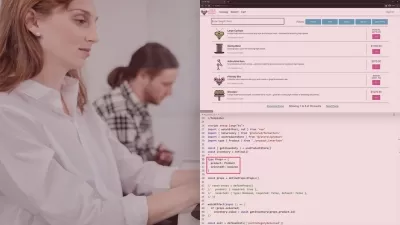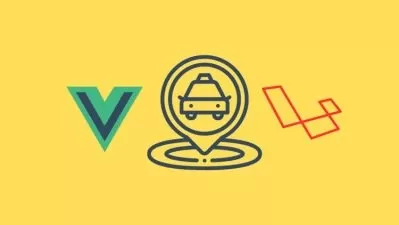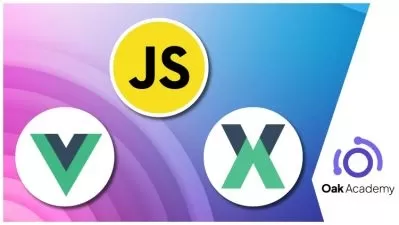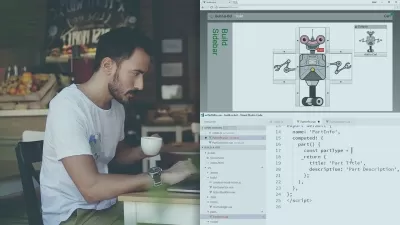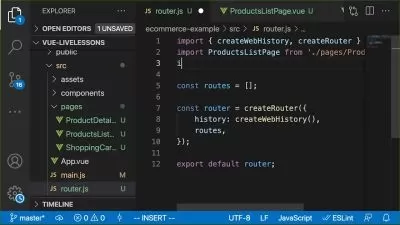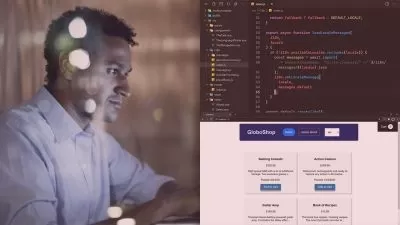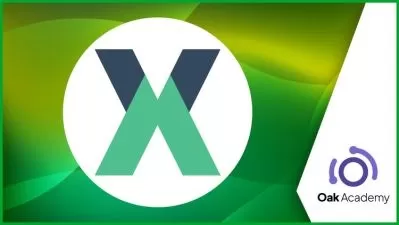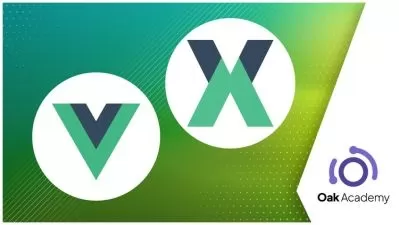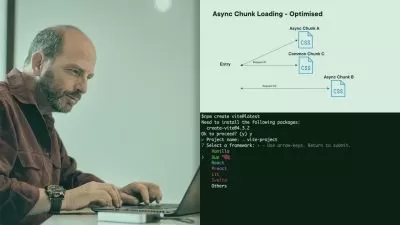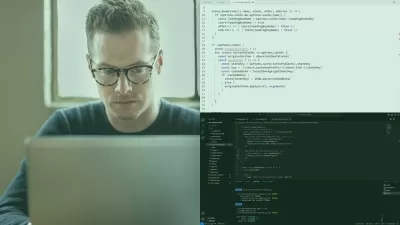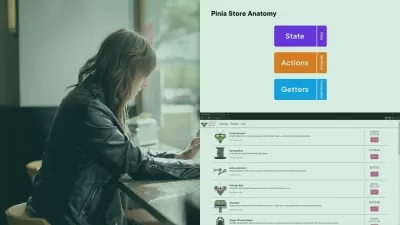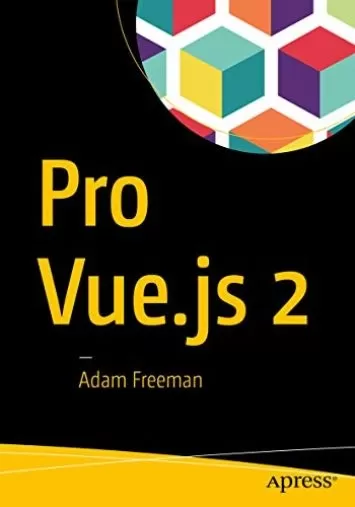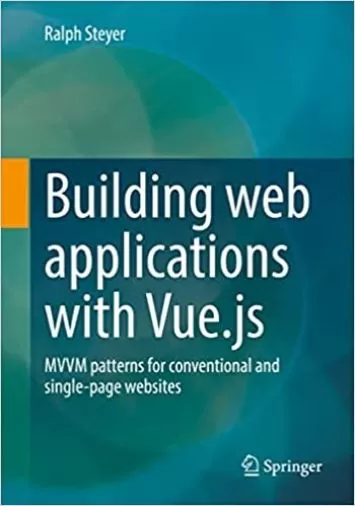About Vue JSLearn More
Vue.js is a JavaScript framework that is widely popular because it is easy to learn and use. Originally designed to create applications and web interfaces for a single page, Vue is now capable of building web and desktop apps. Use it to develop mobile apps with help from the Electron framework. Over a million learners have explored this exciting platform with a Vue.js course on Udemy, and you can too, no matter your skill level.
Sort by:
Sorting
The newest
Most visited
Course time
Subtitle
Filtering
Courses
Subtitle
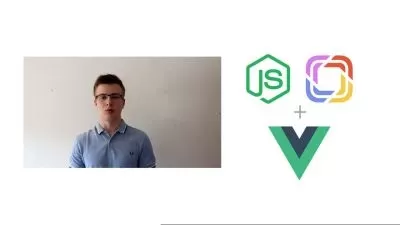
SkillShareVue.js Headless CMS - Develop Dynamic Websites using Prismic.io!
2:08:56
English subtitles
12/31/2023
Subtitle

Pluralsight


Chris Behrens
Vue 3 Authentication and Authorization 1:16:09
English subtitles
12/05/2023
Books
Frequently asked questions about Vue JS
Vue (pronounced like view) is a frontend development framework for JavaScript (JS) that you can use to build web-based user interfaces. You can also use it to create one-page applications and handle animations, interactive elements, and graphics. Generating projects is also possible with the user-built presets, which is commonly applicable for coders working in enterprise environments. Because it is based on JavaScript, you can easily integrate Vue into an existing JS project. Vue uses the traditional Model-View-Controller (MVC) architecture, which means that the core library of Vue.js focuses on the view layer by default. It enforces a one-way data flow between components. This also makes it easy for you to integrate with other libraries or existing projects. Vue also uses virtual DOM (Document Object Model), which makes it faster than regular DOM. Instead of re-rendering the whole page, Vue only updates the objects that you change.
Although Vue has an MVC architecture, you cannot use it with a different architectural approach, which differs from the Component Based Architecture (CBA) used in React. They also differ in how they optimize data. When a component’s state changes in React, it triggers the re-render of the entire component sub-tree, starting at that component as the root. Vue automatically tracks a component’s dependencies during its render, so the system knows which components actually need to re-render when the state changes. In React, everything is in JavaScript. Vue, on the other hand, embraces web technologies like HTML, CSS, and JavaScript and allows you to build off of them. Another difference between these frameworks is how you can scale up your projects. React only offers a single template that assumes you’re building a single-page application, while Vue offers several default options for multiple purposes and build systems.
Vue JS can be easy to learn. Unlike other frontend technologies, Vue doesn’t require in-depth knowledge of libraries. If you want to start learning Vue, all you need to have is basic knowledge of HTML, CSS, and JavaScript. Compared to other coding technologies, developers typically classify Vue.js as having an easy learning curve. This is due largely in part to Vue’s reputation for having an elegant programming style and patterns. Because Vue is a progressive framework, it makes it easy for you to use it to integrate into an existing project. Because of its familiar templating syntax and use of components, you may find that integrating or migrating existing projects to Vue is fairly straightforward. Vue is known for offering a vast ecosystem of tools and companion libraries, making it a simple framework that you can use to respond to the complex needs of enterprise-grade applications.
Vue JS is often used to build front-end applications where a lightweight but full-featured, extensive framework is required. Developers in many front-end development jobs use Vue JS to build these apps from scratch. In other development jobs that require Vue JS knowledge, developers must also know the frameworks built on top of Vue JS, like Vuetify or the Quasar Framework. In others, Vue JS will be rendered server-side with a framework like Nuxt.js. These jobs would qualify as front-end development jobs with a title like front-end engineer or front-end developer. Vue JS can also be used for mobile development in the Vux or Vue Native frameworks, so you may need to know Vue JS for some mobile development jobs. It is also included in the Laravel PHP web framework, so some full-stack developers and even PHP developers may need to know Vue JS.





